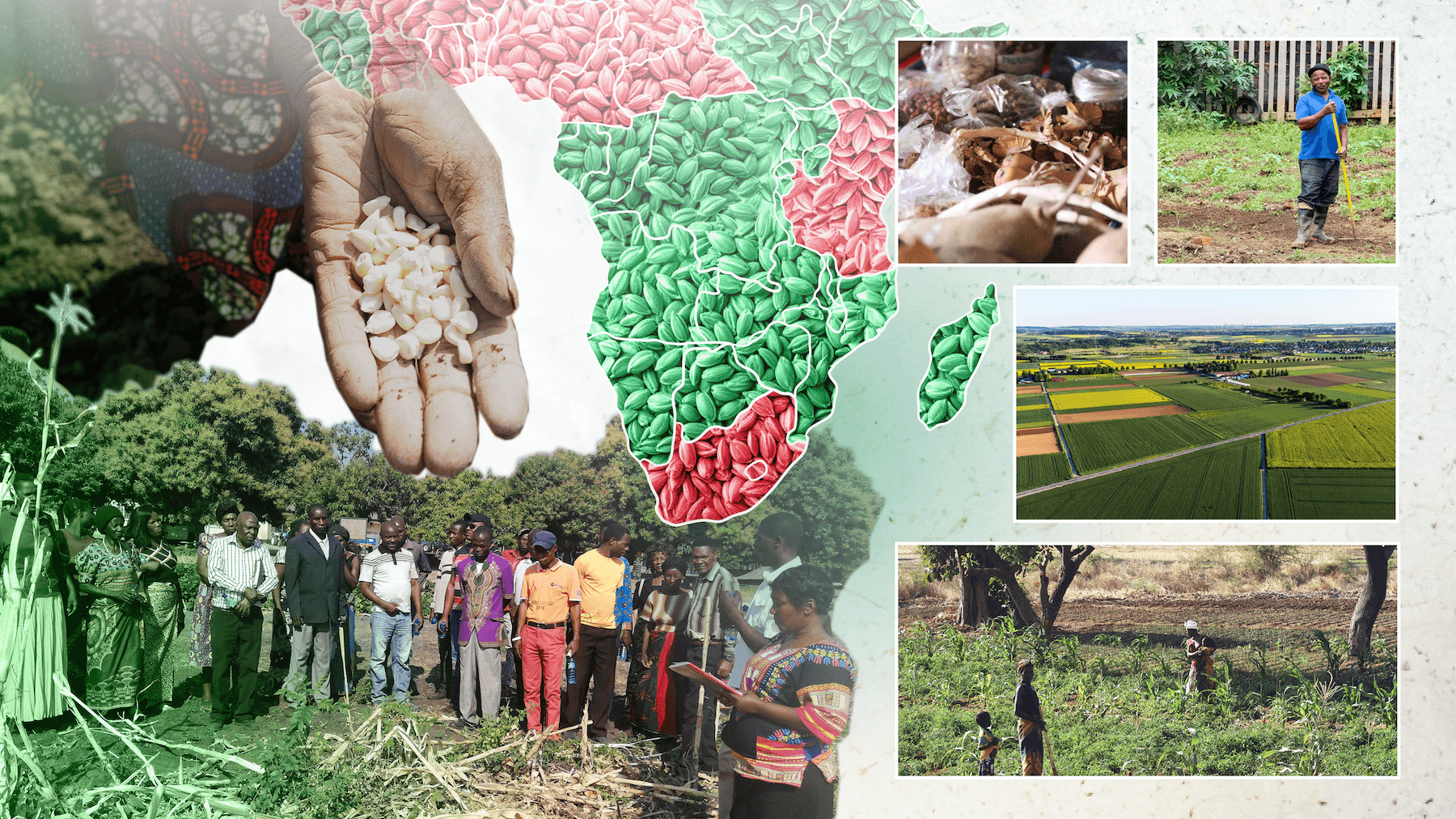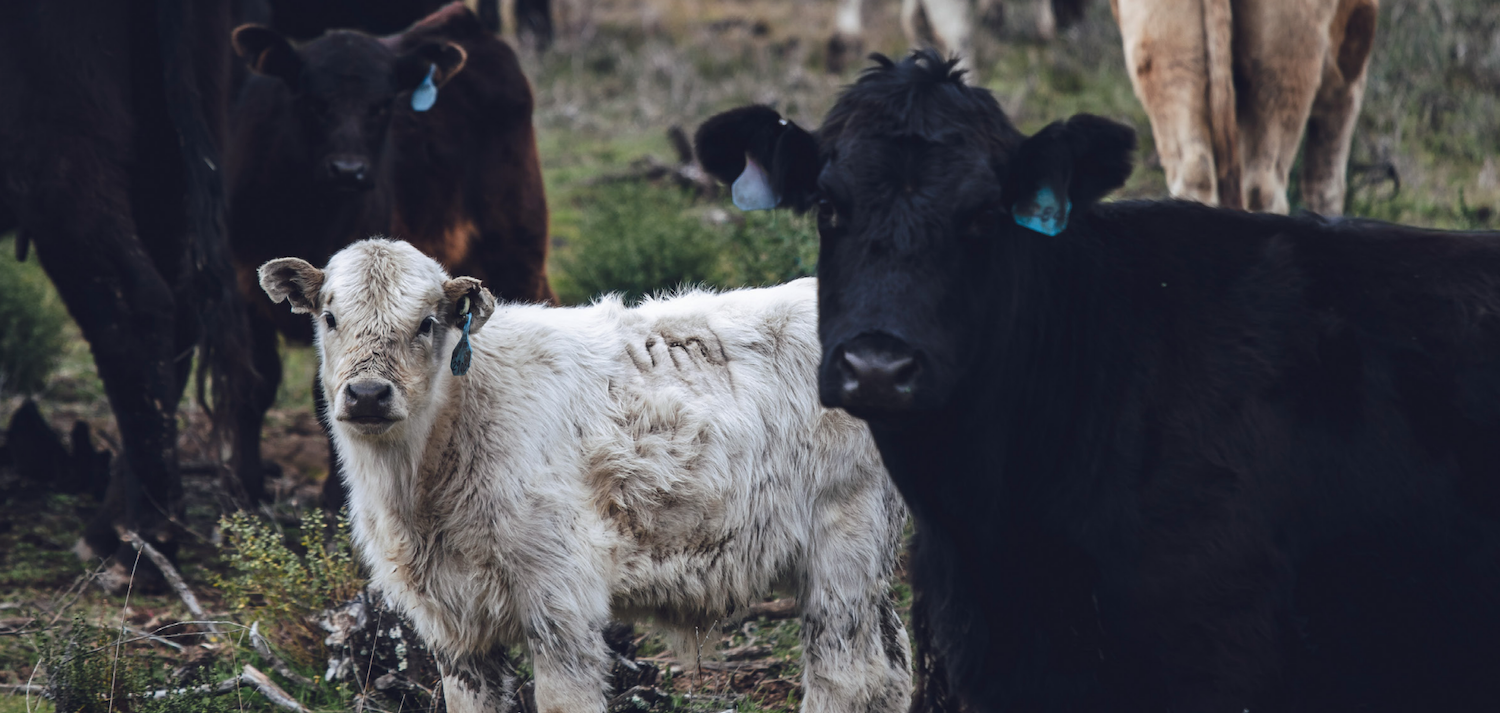Latest Resources

1 September 2025
South Africa’s plant breeders’ rights laws undermine farmers’ rights to seed and lock out farmer-...
In this briefing, we deal mainly with the Regulations made in terms of the Plant Breeders’ Rights (PBR) Act, No. 6302, on 13 June 2025, and particularly the exemptions to breeders’ rights, through the lens of understanding the impact on the realisation of farmers’ rights to seed and farmer-managed seed systems (FMSS). We discuss the […]

26 August 2025
We don’t need genome editing to ensure Africa’s food sovereignty
Will stringent regulation safeguard Africa’s food systems? Across Africa, powerful corporate, donor, and government interests are driving a rapid push to deregulate genome editing in agriculture. Countries including Nigeria, Kenya, Ghana, Malawi, Ethiopia, and Burkina Faso have adopted product-based guidelines that exempt many genome-edited crops from GMO regulation if no foreign DNA is present in […]

11 August 2025
Agricultural policy reform in South Africa
Addressing animal welfare within a just, agroecological food systems transition This discussion document, written by Linzi Lewis on behalf of Humane World for Animals, South Africa (SA), highlights the need for greater attention to be given to industrial animal agriculture. As one of the major drivers of current socio-ecological crises, it demands further consideration within […]
11 August 2025
Objection and biosafety concerns relating to GM canola field trial application
The ACB has lodged an objection to an application for field trials in South Africa of genetically modified (GM) canola; namely, event DP73496, which confers tolerance to glyphosate-based herbicides. Since there are 154 known species of Brassicaceae in South Africa that can potentially cross-fertilise with canola, genetic contamination is a significant risk. This is aided […]

21 July 2025
First of its kind, South African pesticide compendium documents widespread and worrying human and...
Within the South African context of regulatory failure, antiquated legislation, and co-optation by industry, a considerable number of agrotoxins classified as highly hazardous pesticides (HHPs) – many of which are banned in regions such as the European Union (EU) – as well as other noxious chemicals, have become ubiquitous in our environment, our food and […]

5 February 2025
Financing biodiversity in the face of capitalist extractivism and ecocide
ACB comments on the South African government’s Biodiversity Finance Plan Humanity is facing a multi-faceted crisis of civilisation, with environmental, social, and economic dimensions. Fundamentally, this crisis is caused by capitalist dynamics of accumulation and extraction, and the associated use of the environment as a free or cheap resource and service provider. Effective biodiversity restoration […]

25 November 2024
Greenhouse gas emissions in the South African food system: Integrated and transformative response...
Climate change is set to wreak havoc on South Africa (SA)’s agri-food system. Increasing temperatures, lower and more erratic rainfall, and more extreme weather events will characterise the climate in Southern Africa over the next decades. This poses challenges for food production and food security. At the same time, SA’s agri-food system is one of […]

22 November 2024
Petition – Reckless endangerment: Hold South African government and chemical industry to account ...
17 June 2025 UPDATE: Thank you to all who signed our petition, supporting our call to hold the South African government and chemical industry accountable for the devastating effects of toxic pesticides on our society. Following the South African People’s Tribunal on AgroToxins (SAPToA), which was held in March this year, the three jurors, Judge […]

4 November 2024
Les subventions néfastes, la dette et le financement de la biodiversité en Afrique
Des pistes pour une transition juste en préparation de la COP 16 et au-delà (Click here to read in English.) La cible 18 du cadre mondial pour la biodiversité de la Convention sur la diversité biologique préconise l’élimination, la suppression progressive ou la réforme des subventions néfastes pour l’environnement et la société, ainsi que l’augmentation […]

18 October 2024
Harmful subsidies, debt and financing for biodiversity in Africa
Just transition pathways for CBD’s COP 16 and beyond (Cliquez ici pour lire en français.) Target 18 of the Convention for Biological Diversity’s Global Biodiversity Framework calls for the elimination, phasing out, or reform of environmentally and socially harmful subsidies, and a scaling up of positive incentives for the conservation and sustainable use of biodiversity, […]
